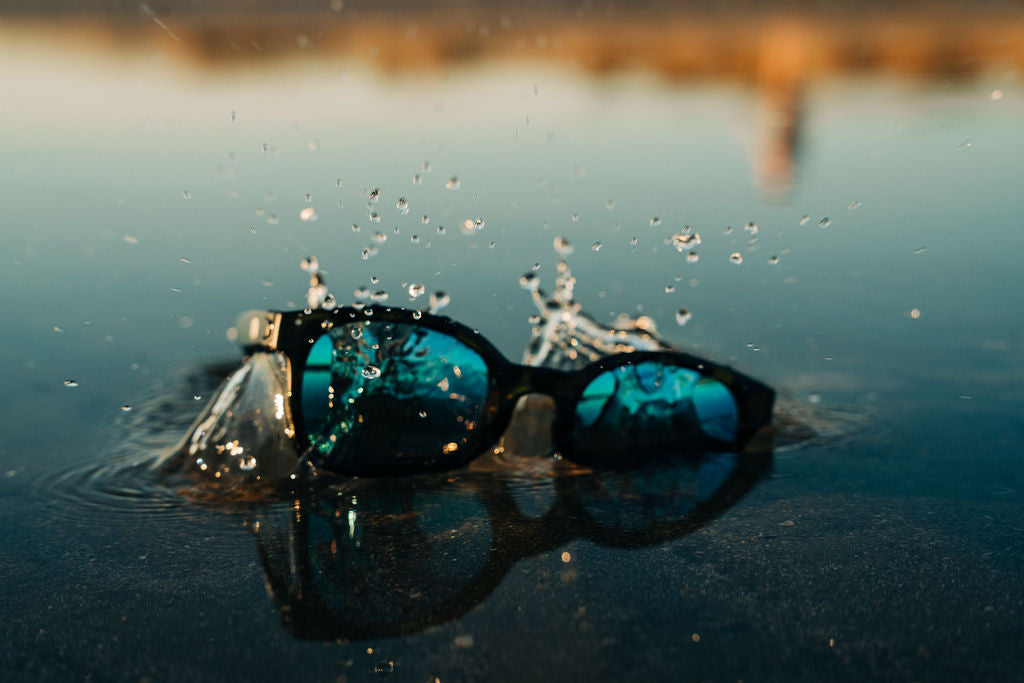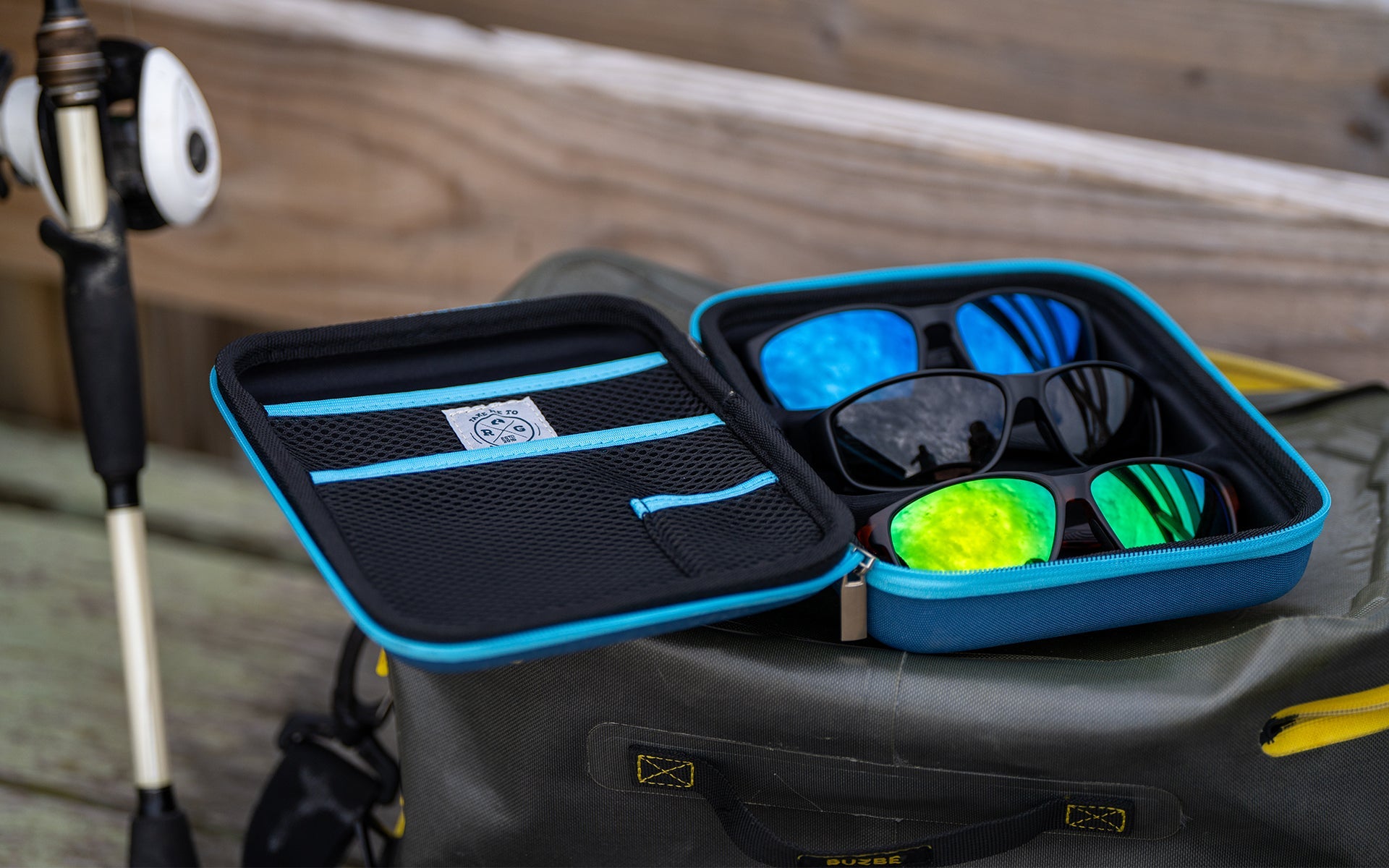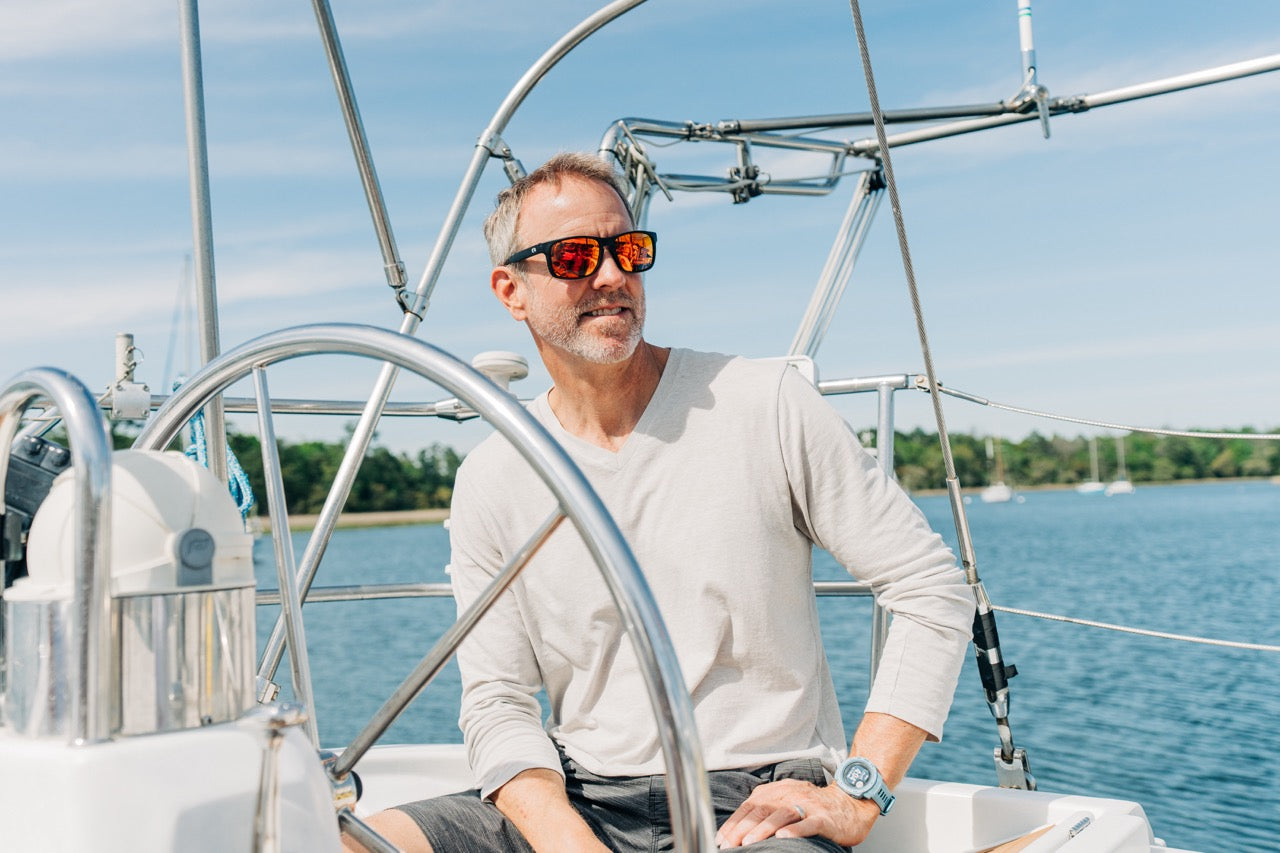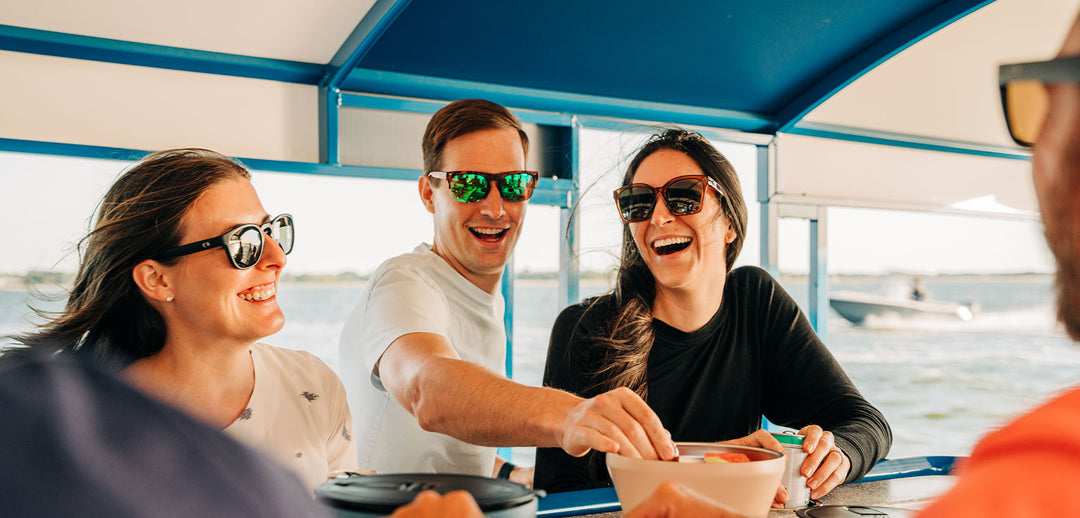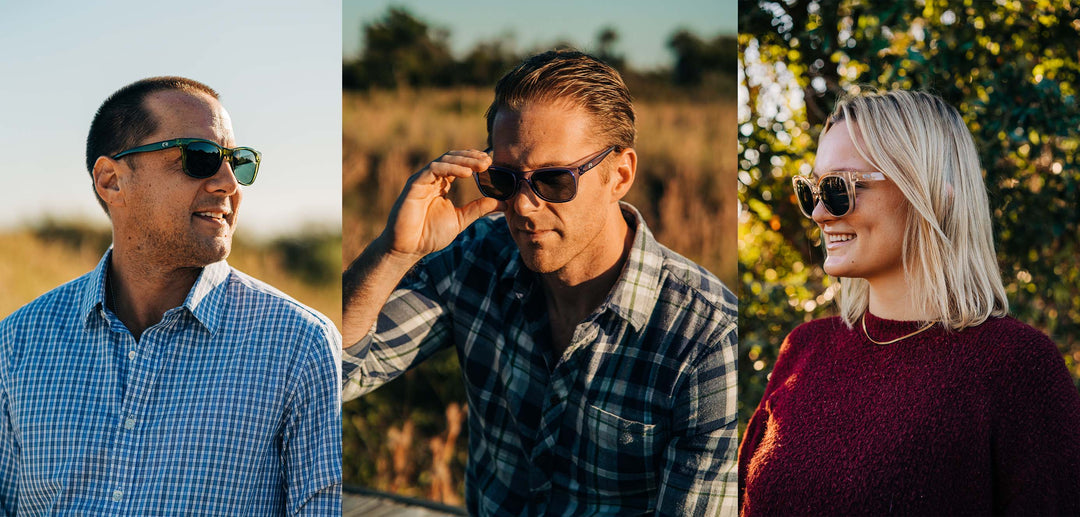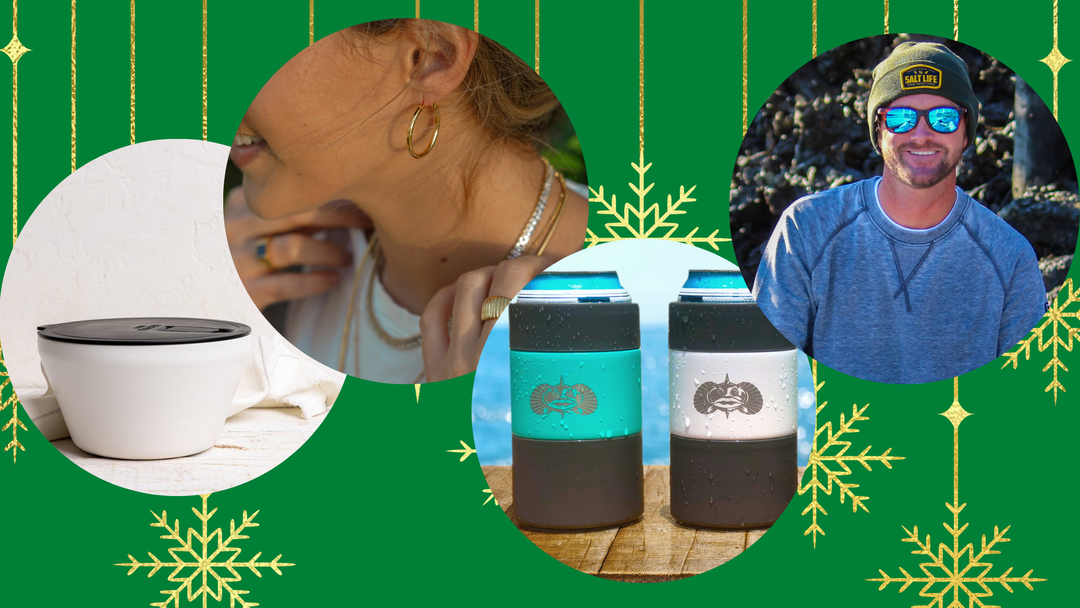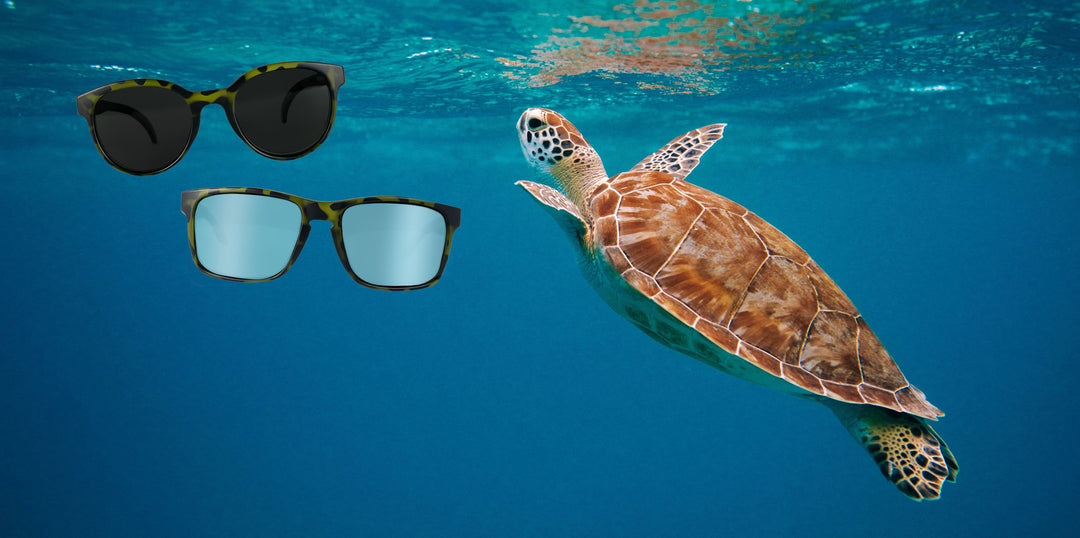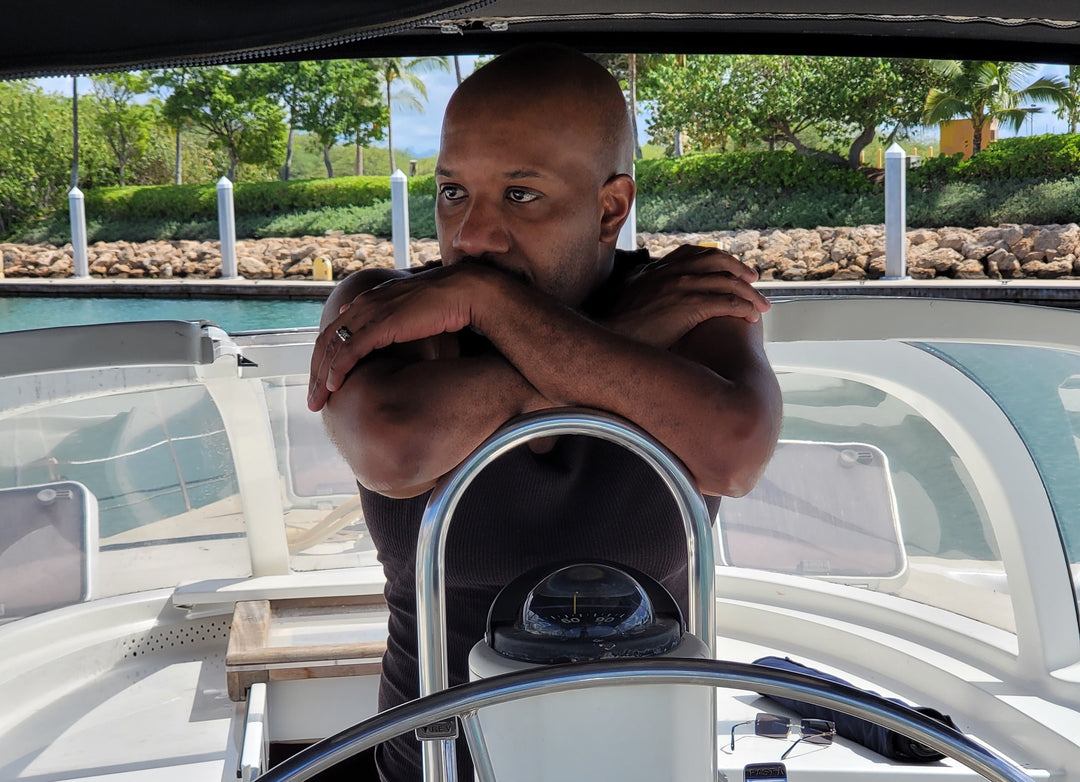Why are polarized lenses important?
When picking out a new pair of sunglasses, most people check for two things: UV protection and polarization. Everyone’s pretty clear on what UV rays are and why we need to protect against them. As for polarization? That one’s still a bit confusing.
If you don’t know what polarized lenses are, or you don’t know if you need them, you’re not alone. We’ve answered the most common questions about polarized lenses to bring some much needed clarity to this lens enigma.
Photo by @kimgrahamphoto
What to know about polarized lenses:
What are polarized lenses?
First and foremost, polarized lenses are designed to reduce glare. This is crucial when you’re driving, skiing, or most importantly, when you’re on the water. Water can create a pretty blinding glare even on cloudy days, and it reflects up to 100% of UV rays… making polarization and UV protection a must-have combination.
How do polarized lenses work?
Light is made up of waves traveling in different directions. When those waves are vertical, they’re useful to the human eye. But when they bounce off of a flat surface like the lake, snow or the hood of your car, the light waves become horizontal. This type of light creates a glare, which makes it difficult to see. Polarized lenses block horizontal light, so you don’t see the glare.
Do polarized lenses have UV protection?
Polarized lenses do not offer full UV protection. However, most polarized lenses you’ll find on the market are also UV protected – though that’s a separate process applied to the lens. When in doubt, double check. The label or product description should indicate whether the polarized lens is also UV400 (meaning it’s 100% UV protected).

Should I buy polarized sunglasses?
Now that you understand how polarized lenses work, you may be wondering if it’s really necessary for you. Most people would agree that seeing a bright glare is no fun. While this affects everyone, particularly while driving, there are some people who need polarized lenses more than others.
- Boaters: If you spend a lot of time out on the water, you’ll want to protect against glare. A high quality polarized lens will block reflected light rays, but still allow clear screen visibility when you need to check your GPS or fish finder.
- Fishermen & women: “Do polarized lenses help you see fish?” We get this question all the time… and the answer is yes. Polarized lenses can help you see beneath the surface, making it easier to spot fish.
- Skiers & snowboarders: Just like water, snow creates an incredible glare. However, polarized lenses can be dangerous because they make it harder to spot icy patches. You may be better off with a yellow-orange lens (with UV protection, of course), which will protect your eyes and enhance contrast.
- Water sports enthusiasts: It’s easy to strain your eyes when they’re constantly blasted with reflected, horizontal light waves. Surfers, paddlers, wakeboarders or any other water sport athletes will benefit greatly from polarized lenses.
- Anyone & everyone: Anyone who wants a better visual experience should invest in polarized sunglasses. They’ll block reflected light off of asphalt, windshields, metal… pretty much anything that can cause eye strain and headaches.
Why are polarized lenses expensive?
Unlike premium lens coatings like anti-reflection, hydrophobic and oleophobic coatings, polarization is a filter that is built into the lens itself. This makes them more costly to manufacture than non-polarized lenses. However, there’s a pretty significant markup in the industry today. New eyewear companies have emerged in the past several years that are shaking up the supply chain status quo, bringing high quality sunglasses direct to consumers without the “middle man” and the crazy markups. It’s now possible to buy a high quality pair of polarized sunglasses around the $50 price point.
What other features should I look for in sunglasses?
In addition to polarization and UV protection, there are several premium lens coatings that can improve your visual experience. These include: anti-reflective, hydrophobic (like Rain-X for your lens), oleophobic (to protect against oils) and anti-scratch. If you spend a lot of time near the water, floating sunglasses are a lifesaver. Instead of sinking money on sunken shades, a pair of floating sunglasses will pop back up to the surface if dropped in the water.
Need help picking out the right frame for you? Shoot us a note at hello@rheosgear.com.
